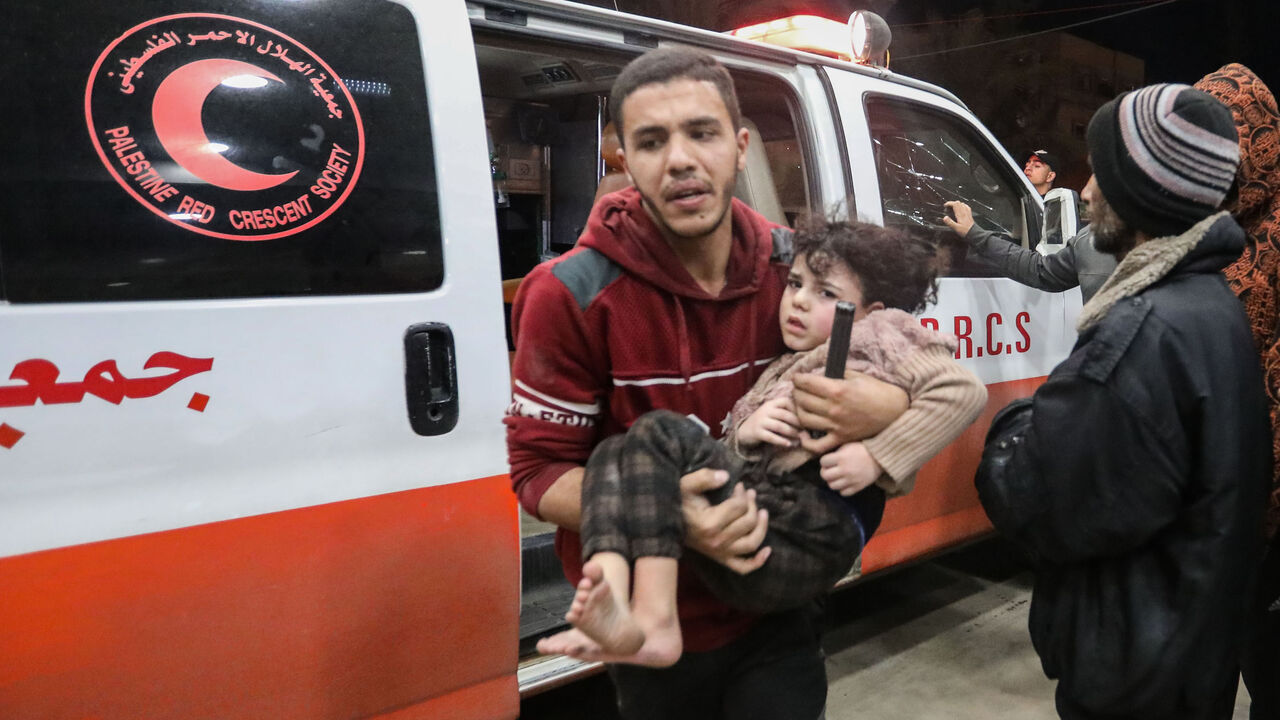WHO says aid agencies can’t fill 'critical gaps' in Gaza left by UNRWA cuts
The World Health Organization’s regional director for the Eastern Mediterranean has warned that more cuts in funding to UNRWA would lead to "further catastrophic consequences for Gazans."

No international agency can fill “the critical gaps” in the Middle East left by the United Nations' relief agency for Palestinian refugees not being not fully operational, the World Health Organization’s regional director for the Eastern Mediterranean declared on Thursday.
UNRWA supports more than 6 million Palestinian refugees and their descendants living across the Middle East with services including health care, education, loans and shelter. On Jan. 27 the United States, United Kingdom, Germany and 13 other countries paused their funding contributions after an investigation was launched into allegations that 12 of the agency’s 13,000 staff members in Gaza took part in Hamas' Oct. 7 attack on southern Israel that killed some 1,200 people and saw 240 more abducted. Israel’s retaliatory war has killed nearly 30,000 Palestinians in the Gaza Strip and uprooted at least 85% of the population.
Speaking at a press conference in Cairo, WHO official Hanan Balkhy said that too often, the international community “takes two steps forward and one step back” on assisting people in need in the Middle East.
The Saudi doctor was giving her first press conference since assuming her role on Feb. 1.
"Funding cuts to UNRWA, the most important and largest supplier of humanitarian aid in the Gaza crisis, means further catastrophic consequences for Gazans,” Balkhy said.
“No agency, including WHO, can meet the critical gaps left if UNRWA is unable to fully operate. This decision also has serious regional implications, as UNRWA covers Palestinian populations in Lebanon, Jordan and Syria," she added.
Her comments come a day after Reuters reported, citing UN data and officials, that the flow of aid entering Gaza from Egypt had almost dried up over the past two weeks and a collapse in Hamas-led security is making it increasingly difficult to distribute what does get through.
Nasser Hospital update
During the same press conference, Al-Monitor also asked Ayadil Saparbekov, WHO head of office for the West Bank and Gaza, for an update on Nasser Hospital in the southern city of Khan Younis. The facility was attacked by the Israeli military last week and the WHO has since declared the hospital nonfunctional. The Israel Defense Forces claimed Hamas fighters were using the hospital's infrastructure and had been keeping hostages there. No hostages were found, but the Israeli forces said they found dozens of containers with medication intended for hostages as part of a Qatar-brokered deal for a cease-fire and their release.
Responding to the question, Saparbekov said, "So far, the hospital remains unfunctional. WHO so far conducted three high-risk missions into Nasser hospital and managed to evacuate 51 patients to hospitals in the south. But we still have around 140 patients remaining in the hospital.”
He added that the WHO had evacuated a number of patients with traumatic injuries including burns.
“The WHO will continue to try to evacuate those critically wounded and critically ill patients from the Nasser hospital to other hospitals in the south, into hospitals that have been established recently in Rafah.”
Saparbekov said that when the WHO visited the hospital Tuesday, four doctors and nurses and around a dozen volunteers were still working there.
The official said the hospital’s intensive care unit is not functioning, the building has no electricity, food, medical supplies or oxygen and the main generator is not working properly.
All the hospitals in the south are now operating beyond their capacity, he added.








